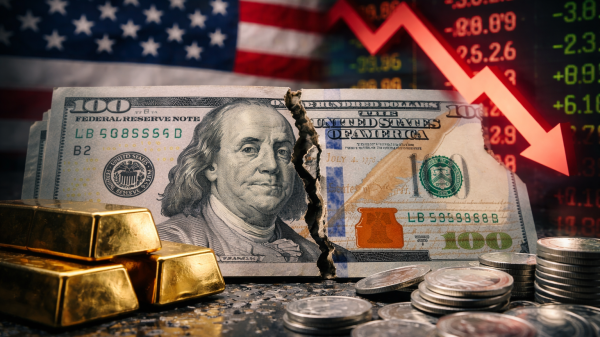Germany’s inflation rate dropped more than expected in September, marking a key economic moment as inflation levels hit their lowest in years.
According to preliminary data from Destatis, the German statistics office, the harmonized consumer price index (CPI) fell to 1.8%, lower than the anticipated 1.9%. This marks a continued decline from August’s 2%, reflecting a trend of easing inflation across Europe.
On a monthly basis, the harmonized CPI saw a slight decline of 0.1%, contrary to predictions of stability in a Reuters poll.
This is the first time since February 2021 that Germany’s inflation rate has fallen below the European Central Bank’s (ECB) 2% target, a significant milestone in the country’s economic recovery.
Inflation rates are harmonized across the euro area to ensure consistency and comparability between member states.
Earlier regional data revealed a similar trend, with North Rhine-Westphalia, Germany’s most populous state, reporting inflation at 1.5%, down from 1.7% in August.
Across Europe, both France and Spain reported inflation rates below the 2% target, signaling widespread easing in the eurozone.
This data comes just ahead of the highly anticipated euro area flash inflation report, which will provide further insights into the ECB’s future policy direction.
Investors are keenly watching for signals on whether the ECB will implement another interest rate cut, following the bank’s second rate cut earlier this year.
Despite the lower-than-expected inflation figures, the EUR/USD remained relatively stable, trading around 1.1200 with a slight 0.3% gain.
Germany’s 10-year bond yield saw a minor increase of 3.5 basis points (bps) to 2.17%, while the two-year bond yield, sensitive to ECB rate expectations, also rose by 3.5 bps to 2.12%.
As inflation continues to ease, the focus shifts to other European markets.
Austria’s bond yield gap with Germany remained stable at 49 bps following the far-right Freedom Party’s success in the recent elections, though Austrian political leaders have ruled out a coalition with the party.
Meanwhile, the gap between French and German 10-year yields, which reached its widest since 2012, stood at 79 bps, with France’s government considering corporate tax hikes to address public finance challenges.
Italy’s 10-year yield also rose by 5 bps, further widening its spread with Germany.
Germany’s inflation figures reflect a broader shift across Europe, as the region contends with easing inflation and potential changes in ECB policy. Investors will be closely watching upcoming reports for further indications of economic stability in the eurozone.
The post Germany’s inflation falls to 1.8% in September; EUR/USD remains stable appeared first on Invezz




































